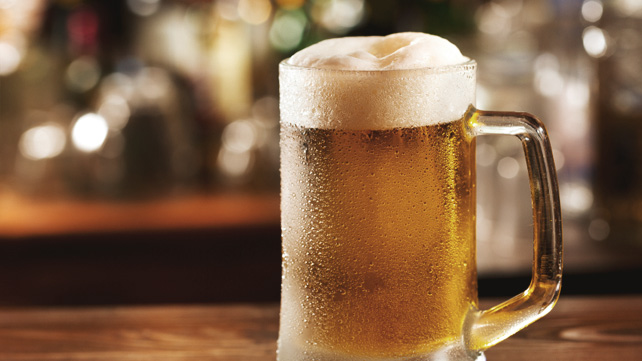 What are hops?...Hops are the female flowers from the hop plant, Humulus lupulus. They’re
most commonly found in beer, where they help produce its bitter flavor.
Hops also have a long
What are hops?...Hops are the female flowers from the hop plant, Humulus lupulus. They’re
most commonly found in beer, where they help produce its bitter flavor.
Hops also have a long history of use in herbal medicine, dating back to at least the 9th century in Europe. They have traditionally been used to treat a variety of ailments, ranging from indigestion to leprosy.
Once hops became an important ingredient for beer manufacturers, scientists began studying the effects they can have on your body. Common areas of study include hops’ potential usefulness for treating sleep disorders. While more research is needed, studies suggest that hops may help improve sleep quality.
How do hops affect sleep?
Long ago, anecdotal evidence began to emerge that hops have the
potential to promote sleep. In Europe, people began noticing that field
workers who cultivated hop plants tended to fall asleep on the job more
than usual. Their work was no more physically demanding than any other
fieldwork, so people began to wonder if hops had sedative properties.
Early scientific studies found no solid evidence to support claims of hops’ sleep-inducing potential. More recently, researchers have taken a closer look at hops and their effect on anxiety and sleep disorders. Several scientific studies suggest that hops do have sedative effects.
For example, a study reported in the journal PLOS One examined the effects of drinking non-alcoholic beer with hops at dinnertime. The researchers found that women who drank it showed improvements in their sleep quality. The participants also reported reduced levels of anxiety. Another study published in Acta Physiological Hungarica linked drinking non-alcoholic beer with hops to improved sleep quality among university students.
Early scientific studies found no solid evidence to support claims of hops’ sleep-inducing potential. More recently, researchers have taken a closer look at hops and their effect on anxiety and sleep disorders. Several scientific studies suggest that hops do have sedative effects.
For example, a study reported in the journal PLOS One examined the effects of drinking non-alcoholic beer with hops at dinnertime. The researchers found that women who drank it showed improvements in their sleep quality. The participants also reported reduced levels of anxiety. Another study published in Acta Physiological Hungarica linked drinking non-alcoholic beer with hops to improved sleep quality among university students.
Why are hops combined with valerian?
While hops have shown promise for relieving anxiety and sleep
disorders on their own, they might be even more effective when combined
with an herb called valerian. This herb has a lot in common with hops.
It also has a long history of use as an herbal treatment for insomnia.
According to a review article published in Australian Family Physician, some scientific evidence suggests that valerian can help improve sleep quality, when taken on its own or with hops. However, more research is needed.
While valerian can cause mild side effects, the National Center for Complementary and Integrative Health notes it’s generally safe to use for short periods of 4 to 6 weeks.
According to a review article published in Australian Family Physician, some scientific evidence suggests that valerian can help improve sleep quality, when taken on its own or with hops. However, more research is needed.
While valerian can cause mild side effects, the National Center for Complementary and Integrative Health notes it’s generally safe to use for short periods of 4 to 6 weeks.
Other uses
Can hops be used to treat other conditions?
On top of their sedative properties, hops also have estrogen-like
characteristics. Like soy and flaxseed, they contain phytoestrogens.
These plant-derived substances share many of the properties of estrogen.
As such, scientists are also exploring the potential use of hops to
treat menopausal symptoms.
For example, a study published in Planta Medica suggests that hops may help relieve some symptoms of menopause. But the authors note that more research is needed on the efficacy and safety of hops-based treatments.
Researchers in the British Journal of Nutrition suggest that hops may also help prevent obesity in mice that were on a long-term high fat diet. More research is needed on the effect of hops on obesity in humans.
For example, a study published in Planta Medica suggests that hops may help relieve some symptoms of menopause. But the authors note that more research is needed on the efficacy and safety of hops-based treatments.
Researchers in the British Journal of Nutrition suggest that hops may also help prevent obesity in mice that were on a long-term high fat diet. More research is needed on the effect of hops on obesity in humans.
What are the risks of using hops?
It’s also important to choose your source of hops wisely. If you decide to try taking hops for insomnia or other conditions, think twice before drinking an extra pint of beer at night. Drinking too much alcohol can actually lower your quality of sleep, even if it helps you fall asleep faster. It can also raise your risk of many chronic health conditions, including liver disease, heart disease, and certain kinds of cancer. Most studies on hops use either supplements or non-alcoholic beer containing hops.
Talk to your doctor if you think hops might help you sleep better at night. If you decide to take hops, get your fill from non-alcoholic sources that won’t damage your liver
No comments:
Post a Comment